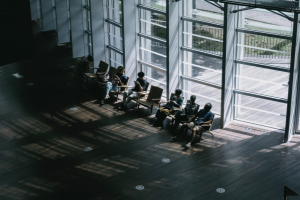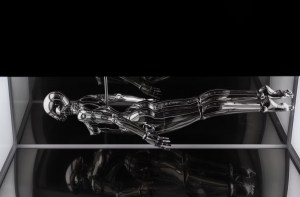The last decades appeared to be a relatively slow but steady rise for progressive causes (or at least one with little setbacks). Think about the tackling of taboos around mental health or discrimination, of increasing rights for different groups to express their identity and sexuality, or even the slow diminishing of traditional religion in favour of a more open, free and individualistic world. It seemed as if the sky was the limit towards a future of personal freedom. Yet…lately there is a noticeable, growing backlash against progressive social causes.
Examples of a rising conservative sentiment are numerous: worldwide we see politicians increasingly designate ‘woke’ ideology as a threat, anti-immigration sentiments have become more mainstream and widely adopted in society, growing reach of popular influencers that preach a return to traditional gender roles (like Andrew Tate or #TradWife communities), a surprising rise in conservative values among young people in a big European study, a UN gender report showing a stagnation of progress on gender equality, several elections in Western countries that signal a shift towards populist and nationalist attitudes (often centred around anti-migration), a growing distrust against social media and technology in general in favour of more authenticity.
It is damn near impossible to pinpoint exactly why sentiments like this are changing. Social systems and people are simply too complex and people often don’t even know why they believe the things they do themselves. Still, we defined four social developments that could explain this shift and are worth sharing:
Zero-sum mindset:
Equality is starting to hurt, or at least feel like it will. Many societal changes are seen or experienced through a perspective of competition. Not just for resources but also for prestige and reputation. So when groups that were traditionally marginalized are gaining more societal recognition and resources, this can be perceived as a threat to traditional dominant groups. What is interesting in this mindset is that it doesn’t even matter if dominant groups are actually losing out, as long as people feel like they will, you will often see growing resistance against equality movements. And especially in times of inflation, housing and cost-of-living crises, this mindset is more likely to influence attitudes.
Corona:
I know we can’t blame everything on corona anymore, but a recent article in the Volkskrant (Dutch) makes a strong case for how pandemics often have an aftermath effect that leads to a sharp increase in societal unrest, protests and dissent, even long after the pandemic has died down.
Rapid acceleration of change creates backlash:
Dating back to the 1970 book ‘Future Shock’, there have been worries that the extreme pace of technological and social changes will have people overwhelmed, disoriented and increasingly averse to change in general. Coupled with the current turbulent times we live in (sometimes even described as ‘permacrisis’), the uncertainty that this creates leaves people longing for something safe, trusted and familiar, leading to more conservative attitudes.
What is also important to note is that changing people’s values and beliefs simply takes time. Constantly being confronted with messages that explicitly or implicitly urge people to adopt beliefs that are very different from the beliefs and values they grew up with, will often result in people rejecting the change instead of adopting it.
Additionally, the way our brain functions also has an impact on our willingness to embrace change. Our brain works like a predictive machine. It makes active inferences about the state of the world in all kinds of contexts, all the time. This is a very useful cognitive architecture to have, but a side effect is that when there’s uncertainty in the world which hinders people’s ability to make accurate predictions, they experience anxiety. People love structure and predictability because it gives them a sense of control, so whenever a social rulebook is constantly updated and the world is changing at an unprecedented pace, people can feel less able to predict and therefore experience a lack of control, leaving them anxious (for the unknown). So in this context, rejection of change is a mechanism that allows us to hang on to a feeling of familiarity and control.
(Social) media:
The algorithms on popular platforms have a strong incentive to amplify the extremes of any debate. Instead of showing the nuanced, platforms have found that outrage generates far more exposure, attention (and ad-time). Combined with the media’s similar need to generate clicks, this so-called ‘rage farming’ results in a debate portrayed disproportionally by extremists on both sides, representing the most unreasonable and over-the-top arguments. The result? A suggested polarization far greater than actually exists.
So all in all, we see the pendulum of sentiments change from progressive to conservative. Not only in politics but in many areas of society. And whether it is because of scarcity, corona, the modern world or social media, gives us a valuable insight into the why and how our culture is changing, as well as a peek into the (near) future.

Author
Douwe Knijff











